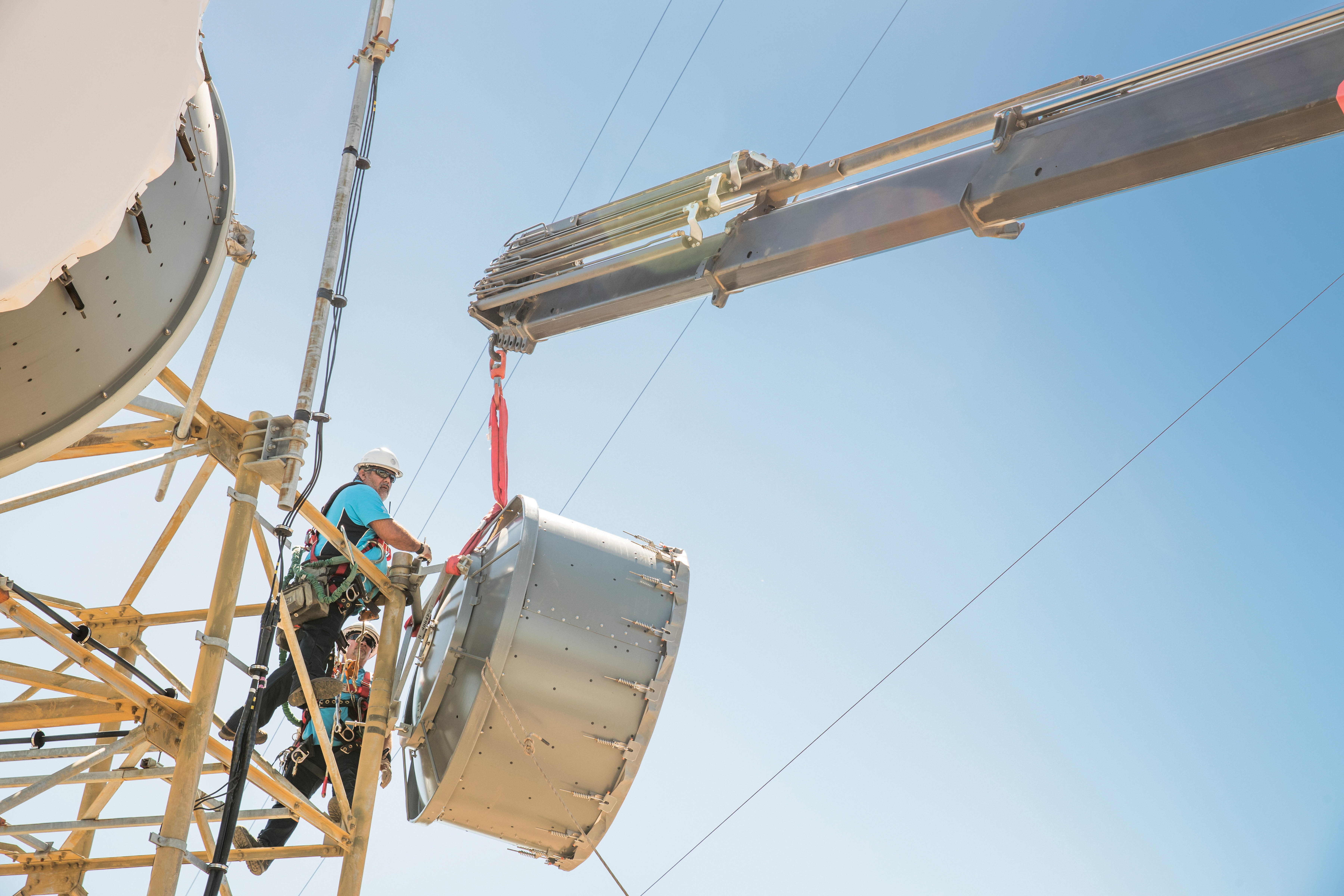- The dawn of agentic AI: Are we ready for autonomous technology?
- Update Your iPhone Now to Fix Safari Security Flaw
- Human firewalls: The first line of defense against cyber threats in 2025
- Will Cisco’s Free Tech Training for 1.5M People Help Close EU’s Skills Gap?
- These 3 AI themes dominated SXSW - and here's how they can help you navigate 2025
FirstNet public safety cellular network adds 5G and data encryption

AT&T’s public safety network picks up new features, including full tower-to-core encryption and a custom 5G setup.
FirstNet One is a 55-foot tethered blimp that can fly and restore communications access in areas that have lost connectivity because of natural disasters or other incidents.
Image: AT&T/FirstNet
FirstNet, the dedicated public safety cell carrier, is adding 5G support and new encryption for user data. The network, which is operated as a public-private partnership between AT&T and an independent government agency called the FirstNet Authority, is exclusively for first responders like police, fire and EMS agencies and employees and other similar organizations.
AT&T’s 5G service has been inaccessible to FirstNet users ever since it launched because a number of FirstNet-exclusive features that are available on the FirstNet 4G LTE do not yet exist on the newer, more cutting-edge network.
FirstNet users receive automatic priority and preemption across AT&T’s commercial cellular bands as well as access to an exclusive LTE Band 14 set of spectrum that is reserved for FirstNet customers. What this means is that FirstNet users get priority over all other AT&T customers when making calls or using data, and if regular channels get too congested, the Band 14 access will remain clear even during emergency situations.
SEE: Future of 5G: Projections, rollouts, use cases, and more (free PDF) (TechRepublic)
If you’ve ever had trouble sending text messages, making calls or using data at a sporting event or concert, you’ve experienced the difficulties that the FirstNet network is trying to solve. At an emergency situation like the Boston Marathon bombing, the situation is amplified even further as many users attempt to communicate at the same time. FirstNet was established after recommendations were made in the 9/11 Commission report to establish a more robust cellular network for emergency responders.
“5G for FirstNet is not your typical 5G,” explained Jason Porter, president of Public Sector and FirstNet for AT&T. “There’s no doubt that 5G has a lot to offer the entire public safety community, but what’s most important is ensuring that as new technologies become available… that we take a first responder-centric view in how we approach its deployment.”
The technology necessary to offer priority and preemption does not yet exist on the 5G network like it does on the 4G LTE network. In addition, the 5G network was simply too new to roll out to users who require always-on connectivity where outages can slow emergency response times. However, FirstNet has an interesting way to manage this while offering access to the increased speeds that AT&T’s mmWave 5G network make possible. The 5G upgrades will be live for FirstNet users this month.
Regular commercial AT&T customers will always be on the 5G network if it’s available over the 4G LTE network. FirstNet devices will dynamically switch between the 5G and 4G networks automatically based on network and connectivity conditions. In addition, voice traffic on FirstNet devices will always travel over the LTE network with the priority and preemption features, as there is little benefit to running voice traffic over 5G, and successfully making voice calls is particularly crucial for first responders.
Also, it’s possible that certain bits of data (like streaming video) will go over the 5G network while other data–like FirstNet’s push-to-talk walkie-talkie features–run over the LTE network free from congestion, even on the same device. This sort of simultaneous data split between the networks on the same device is not available to commercial customers.
In addition, FirstNet is rolling out first-of-its-kind encryption between the cell tower and the FIrstNet core network. In other words, all FirstNet traffic–which runs on a separate network from the commercial AT&T network–will be secured from the cell tower, through the backhaul, and to the FirstNet Core. AT&T says it is installing unspecified security upgrades at every cell tower in the country to support the feature. Houston and Cleveland will see this operational this month, with the rest of the country completed by the first quarter of next year.


